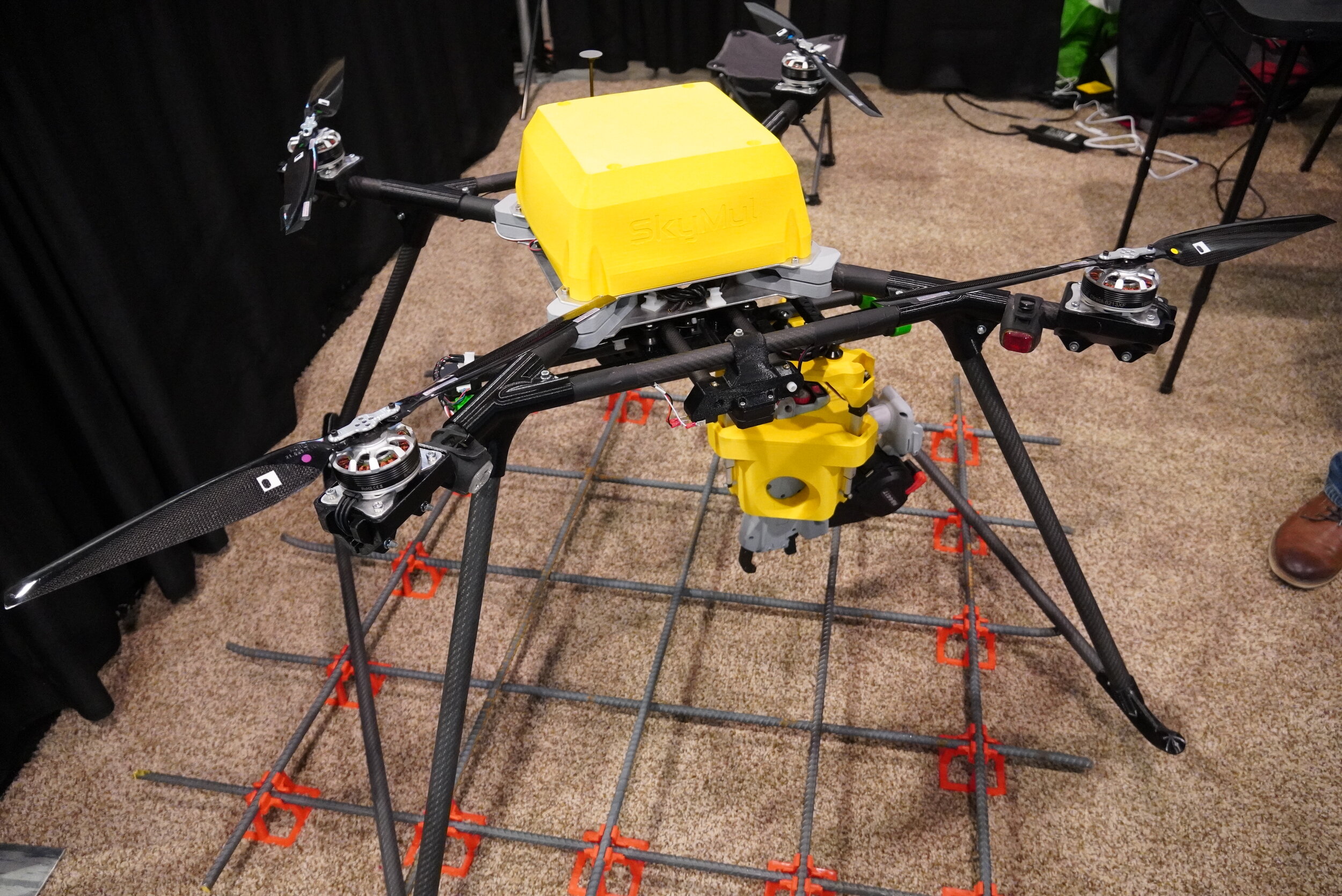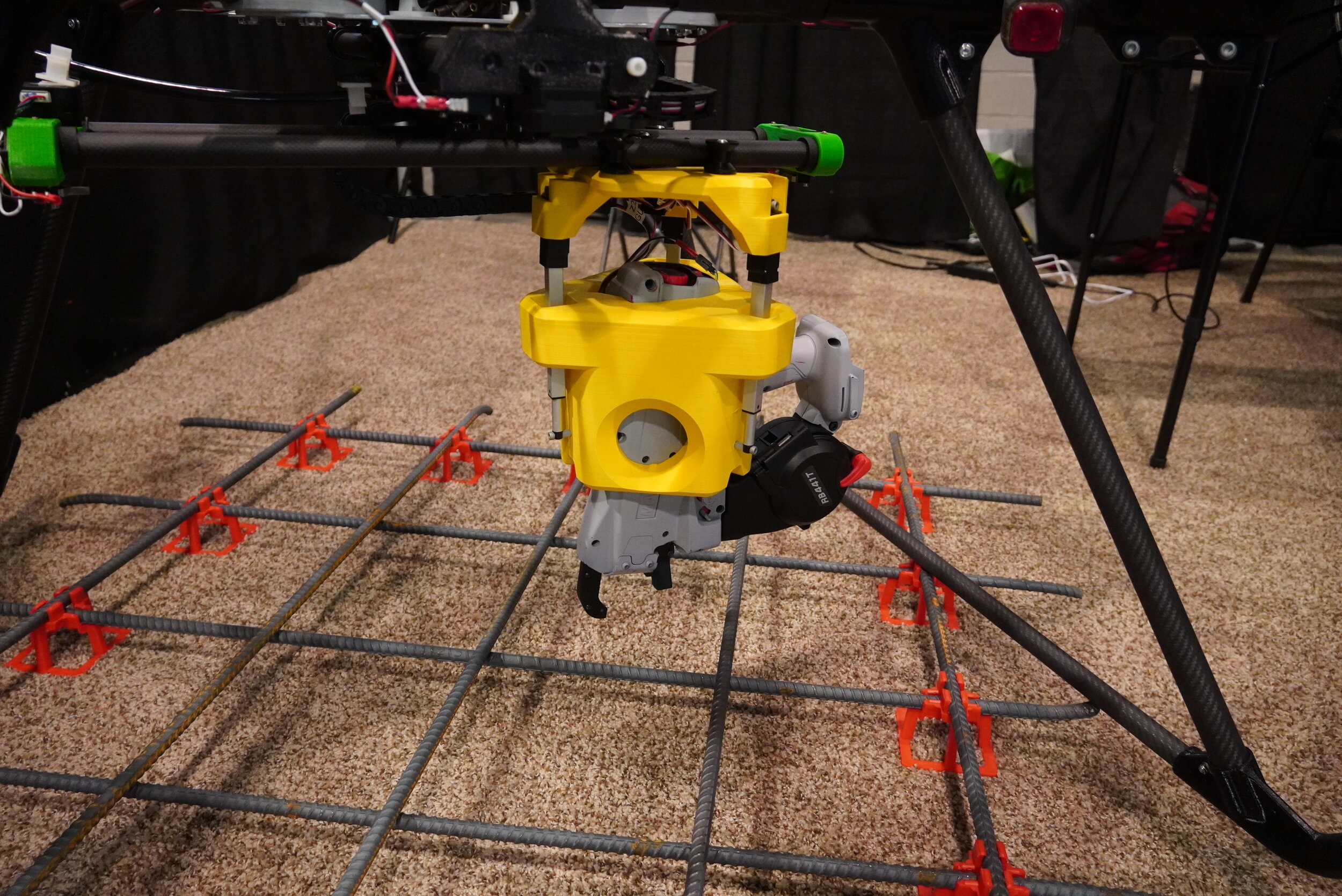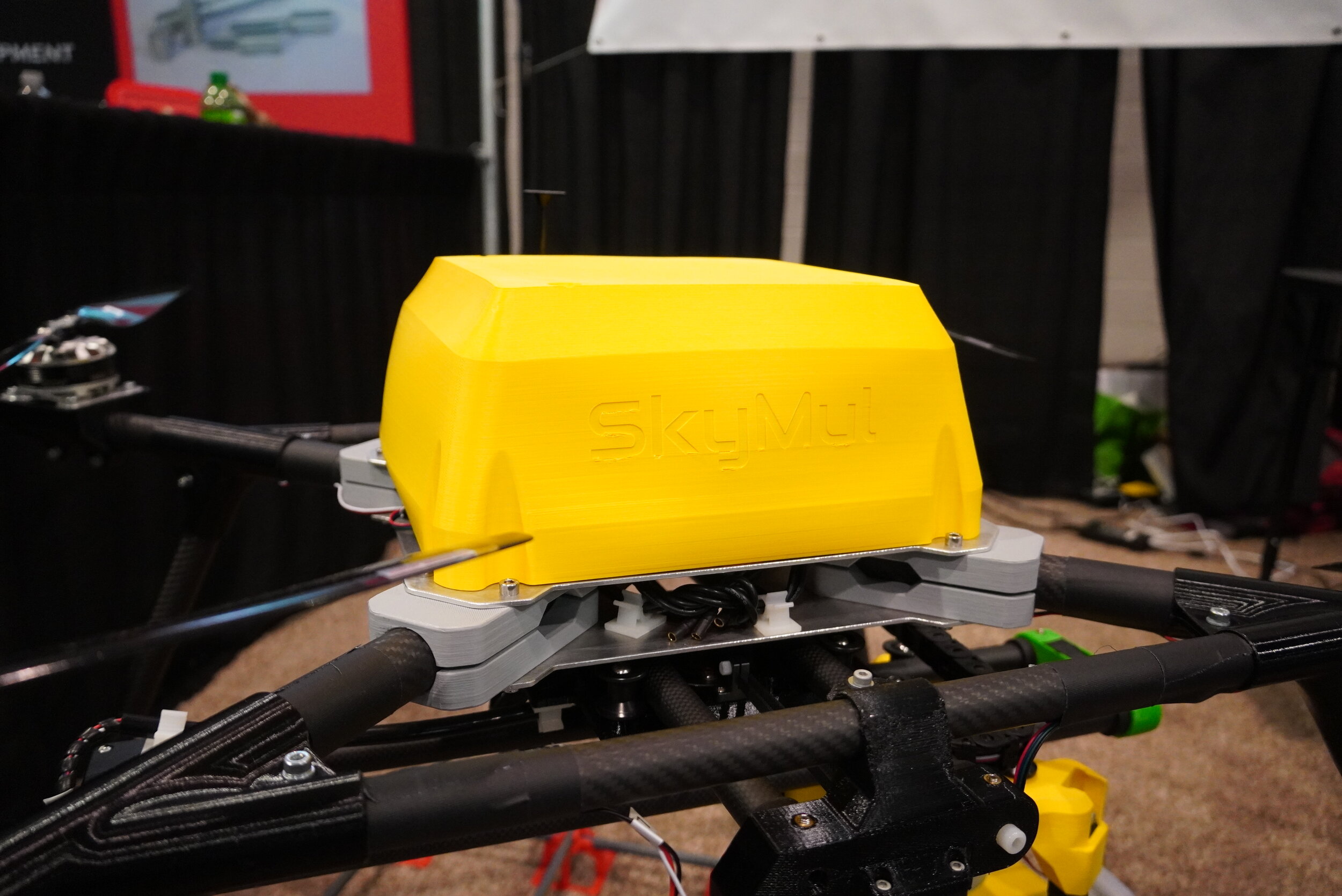Tying rebar is an extremely repetitive and strenuous job, but it’s an essential part of most concrete roads, bridges, and buildings. Typically, rodbusters use hand tools for this work on the jobsite, but my recent visit to the World of Concrete in Las Vegas made me realize how much innovation there has been in the space in the past few years.
Tools currently available range from handheld battery powered tools up to pretty massive robots designed to do the work autonomously. Highlighted below are 7 different ways to tie rebar without using hand tools.
Wacker Neuson DF 16 Rebar Binder
The Wacker Neuson DF 16 Rebar Binder has been available throughout the world for at least 10 years now. It’s unique to this list, because it’s the only non-powered mechanical tool. It uses a simple system to allow users to tie up to 1,000 knots per hour, only requiring the user to push down on the tool at the intersection of two bars. It folds up for easy transportation and extends to allow for upright operation, eliminating the need for continuous bending.
MAX USA Handheld Battery Operated Rebar Tying Tools
MAX was one of the original power tools on the market for rebar tying and they currently have several different models to choose from, each offering different capacity wire sizes or the ability to tie differently sized rebar. MAX’s offerings currently top out at a cross of #9 x #10 rebar with their RB611T. You can check out their RB441T model, with ties up to #7 x #7 bar with 19ga wire, in the video below for more information:
MAX USA Twintier RB401T-E Upright Rebar Tying Tool
The new MAX USA TwinTier RB401T-E Rebar Tying Tool ties rebar with the click of a button just like the handheld RB441T also from MAX USA, but features an extendable pole that doesn’t require the user to bend over. Using 19 gauge TW1061T steel rebar tie wire and the same battery platform as the handheld TwinTiers, the tool can tie rebar in less that a second. On a single charge it can tie up to 4,000 ties on #3 x #3 bars up to #6 x #6 bars.
For more information, check out our previous blog post about it by clicking or tapping here.
Makita XRT01TK 18V Cordless Brushless Rebar Tying Tool
Much like the MAX USA handheld tying tools, the Makita XRT01TK operates off of their 18V battery system. They teal tool company only has one model though, which is limited to #5 x #5 rebar. It does boast a tying capacity of up to 5,300 ties of #3 x #3 bar on a single charge, however. For more information on this tying tool, I’ll pass you off to my buddy Rob over at Belts and Boxes in the video below:
Toggle Rebar Bending and Tying Robots
Founded in 2016 by Daniel Blank and Ian Cohen, Toggle is a” robotics and automation solution for rebar fabrication and assembly,” as self-described by their website. The company touts that their solution doubles labor productivity and increases steel cage production five-fold.
Toggle’s robot can not only fabricate and pre-bend rebar, it can also pre-tie the cage assembly together for cages no longer than 25 feet. The robot does not visit the construction site, however, so all fabrication and assembly takes place in a weather controlled environment and the components are shipped to the site. The startup currently operates out of Brooklyn, NY and can deliver cages up to 300 miles away from their facility.
For more information, check out our previous blog post by clicking or tapping here.
TyBot Autonomous Rebar Tying Robot
The TyBot uses a series of cameras and artificial intelligence to identify the intersections of rebar, so no operator or pre-programming is necessary. Once the machine is setup on the screed rails, it can tie up to 1,000 ties per hour. With its typical uses being in bridge work and manufacturing facilities, the width of the TyBot can expand anywhere from 9 feet to 100 feet
Although TyBot is pretty hefty, weighing in at a maximum of 8,100 pounds, it can be transported on a 40 foot trailer with the equivalent of a Ford F250. The robot is powered by a Cummings Onan QG 5500 EFI generator with a fuel consumption rate between 0.35 gallons per hour to 0.95 gallons per hour, based upon the size of the load.
For more information, check out our previous blog post by clicking or tapping here.
SkyTy Rebar Tying Drone
SkyMul showed off a prototype of their autonomous rebar tying drone dubbed the SkyTy at the World of Concrete this year. While the tool is still in its relative infancy, it certainly seems like an interesting solution to tying rebar. The company told me that drones can solve the issue of uneven terrain that can cause ground based robotics some problems. It would also provide a much quicker set up than a large stationary robot, but could offer the drawback of shorter runtime.














Shane is the creator of Construction Junkie and an active construction project manager. In his career, he has managed interior remodel projects, site development, construction safety, governmental project compliance, and facility maintenance. He has a strong passion for construction technology and safety, as well as sharing the knowledge or insights he has gained throughout his career.